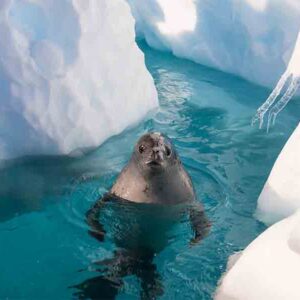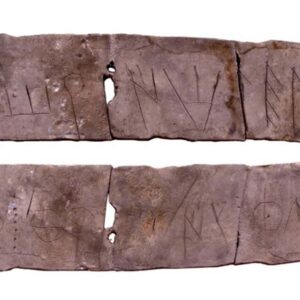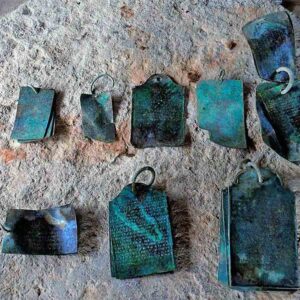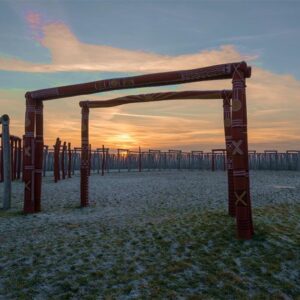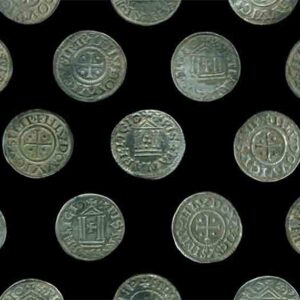Up to date
30 November, 2022 – 02:00
Sahir
600 Rock Carvings Discovered by Intelligent Inquiry and Torchlight
- Learn Later
Three pals in Norway have a outstanding method of spending of their spare time. Armed with torches, they go searching for prehistoric rock carvings, and with singular success. To date, they’ve helped uncover a whole bunch of Norway’s petroglyphs and have notched up a blinding 75 related websites this yr alone!
Pastime Expeditions Yield 600 New Rock Carvings in Norway
Till 2016, lower than 500 petroglyph websites in Østfold in southeastern Norway had been recognized to archaeologists, stories Sciencenorway.no. Now, thanks largely to the efforts of Lars Ole Klavestad, Magnus Tangen and Tormod Fjeld, there are 1,160 and the numbers are prone to go up considerably. The rock carvings discovered by the three amateurs have the potential of fixing historians’ perceptions of life in prehistoric Norway.
- Fiery Illusions of Rock Carvings: Prehistoric Motion pictures
- Petroglyphic Options of Transportable Rock Artwork
Though a personal initiative, the seriousness with which they regard their interest could be judged by the truth that they’ve revealed the findings of their analysis within the journal Primitive Tider. The three professionals – panorama architect and artist Klavestad, archaeologist Tangen and graphic designer Fjeld – defined that they perform their expeditions with nice regularity: “We exit in the dead of night about someday per week,” Klavestad mentioned, in keeping with Science Norway.
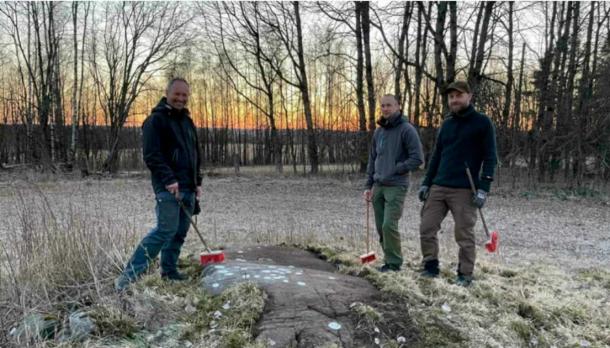
Lars Ole Klavestad (left) is a panorama architect and artist. Magnus Tangen is an archaeologist. Tormod Fjeld is a graphic designer. Collectively, they’ve discovered near 600 rock carving websites in Norwat. This photograph is from an exploration journey in Indre Østfold the place they found 4 new websites. On this small rock outcrop situated in a area they discovered 38 cup marks. The photograph was taken by the farmer on the property. (Science Norway)
Petroglyph Hunters Revolutionize Understanding of Rock Carvings in Norway
One cause for the extraordinary success of the Klavestad, Tangen and Fjeld is that they’ve taken account of the truth that the ocean in Østfold within the Bronze Age round 3,000 years in the past was about 15 meters (49 ft) greater than it’s as we speak. With this truth in thoughts they’ve analyzed the contour traces in maps to determine the place the shoreline will need to have been on the time.
It’s now recognized {that a} substantial chunk of the traditional rock artwork in Norway was carved by coastal dwellers, individuals who stayed on a seaside or svaberg, a clean rock sloping all the way down to the ocean. Rock carvings had been additionally created on inland waterways that stretched farther into Østfold in that interval. These inland waterways disappeared through the glacial rebound on the finish of the Ice Age.
Prior to every expedition, the three amateurs make it a degree to acquaint themselves totally with the land. They research it minutely and work out its previous contours. Additionally they invariably contact the landowners earlier than they set out. “It’s a fairly large thrill once we discover one thing precisely the place our evaluation indicated that it might be,” they mentioned.
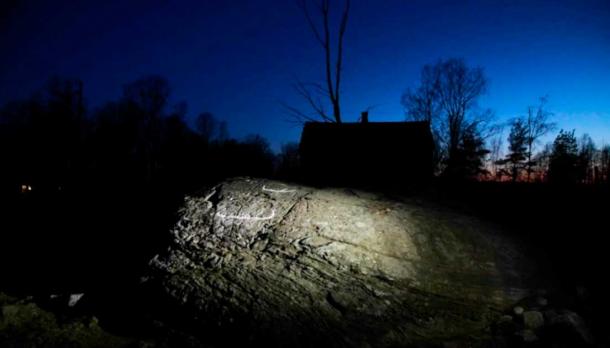
Discovered at Fredrikstad on 15 October, this rock carving in Norway revealed an outline of warships. It’s essential to notice that in fashionable instances this location is way away from the coast. (Fjeld, Klavestad, Tangen / Science in Norway)
Rock Carvings in Norway Have Extra to do with the Sea than Agriculture
3,000 years in the past coastal Østfold was in all probability good agricultural and pasture land. Its clean exhausting granite rock with its superb grain additionally supplied the best floor for rock carvings. Since lots of the rock carvings in Østfold, and elsewhere within the nation, have been present in present-day agricultural fields, archaeologists working 100 years in the past concluded that they largely depicted farming operations.
Nonetheless, not less than 90 per cent of the rock carvings found in Norway embody options linked to the ocean, fjords and lakes. The vast majority of these rock carvings depict boats or ships. However did they at all times draw from the lives of those that created the petroglyphs, or was their inspiration typically discovered elsewhere? Did the boats and ships signify actual seafaring craft or had been they often symbolic? Specialists are nonetheless trying to reply these questions.
This yr Klavestad, Tangen and Fjeld have ventured additional inland to the countryside of Indre Østfold. Right here too, far above the ocean stage, they’ve discovered rock carvings of ships and boats. These, they imagine, might have been impressed extra by artwork from the coastal area than the lives of the Bronze Age occupants of Indre Østfold.
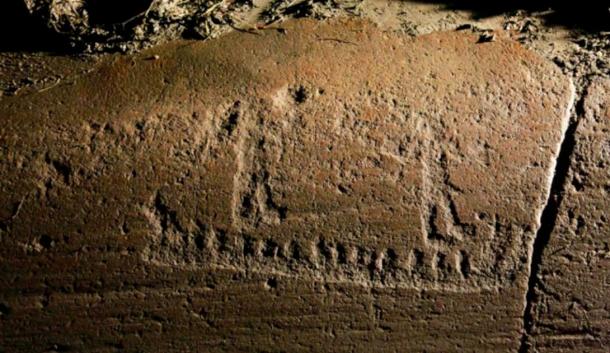
The figures on Norwegian rock carvings present in Fredrikstad, together with a ship with two folks elevating their arms. One holds a cup mark, whereas the opposite spreads his fingers. (Fjeld, Klavestad, Tangen / Science in Norway)
Play of Gentle and Shadow in Rock Carvings Present in Norway
Maybe probably the most fascinating facet of their work is that they’ve used gentle in ingenious methods with a purpose to spot the dear rock carvings. “It is all about utilizing gentle in the correct method,” defined Klavestad. “And over time, the expertise we’ve gained has helped too.”
The trio has recommended that rock carvings in Norway had been supposed to look as fleeting shadow photographs, to be seen on the proper time of day and yr. Their evaluation has discovered that torchlight within the autumn darkness creates simply this impact. Virtually invisible within the daylight, on a rock going through a small bay within the Glomma river in Fredrikstad municipality, a fantastically carved pair of sandals was found with angled lighting in the dead of night.
Petroglyphs in Historical Burial Grounds
The trio’s discovery of a number of rocks in Bronze and Iron Age burial grounds additionally challenged the standard understanding of petroglyphs on numerous counts. For one, they referred to as into query the concept petroglyphs are solely related to marine clay websites.
Additionally they show that the identical rock carvings might have completely different meanings in numerous instances and contexts. “The rock carvings might have been a type of common symbols with completely different meanings, relying on the context and time through which they had been carved, in addition to the place within the panorama they had been,” Klavestad acknowledged.
Rock Carvings in Norway Reveal Uncommon Data In regards to the Previous
These Norwegian rock carvings might supply proof that Viking ships got down to the Mediterranean way back to 3,000 years in the past. The discovering of rock carvings in burial grounds can also point out that the observe lasted longer than beforehand believed.
- Uncommon Runic Writing Unearthed in Norway
- 5,000-Yr-Outdated Rock Carving Depicting Skier in Norway Destroyed by Youths
Whereas cup-shaped depressions and ships and boats are the most typical finds, they’re under no circumstances the one sorts of rock carvings the trio has discovered. One among their most uncommon finds is a website on a rock outcrop in a small area in Råde municipality with about 575 cup marks, 28 crosses, eight star figures, one to 2 boats and a lot of unusual figures and web-like buildings.
The three have now set themselves one other goal; to extend the variety of recognized petroglyph websites in Østfold to 2,000. Given their willpower and previous document at discovering unknown rock carvings in Norway, this bold purpose may very well be properly inside their attain.
High picture: Utilizing torchlight to disclose rock carvings in Norway by night time. Supply: Fjeld, Klavestad, Tangen / Science in Norway
By Sahir Pandey
References
Amundsen, B. 25 November 2022. “Three guys with torches have discovered virtually 600 new rock carvings of their spare time” in sciencenorway.no. Accessible at:
Tangen, M., Fjeld, T., Klavestad, L.O. 2021. “Antallet helleristningsfelt i Østfold doblet” in Primitive Tider, No. 23. Accessible at:

